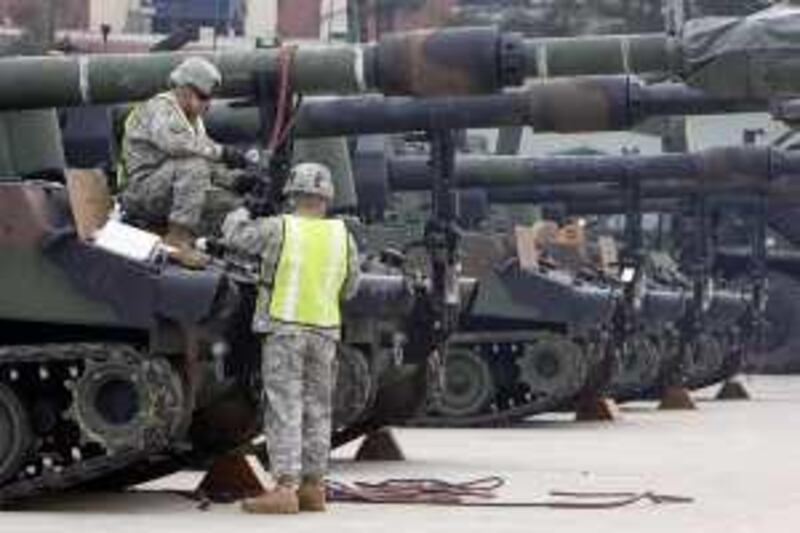International and domestic airlines diverted flights away from North Korea yesterday following threats from the communist country over the safety of civilian planes flying in its airspace. In the latest escalation of tension on the peninsula, Pyongyang said the security of aircraft approaching South Korea from the east, over the Sea of Japan and near the location of its missile base, could not be guaranteed, particularly during a joint US-South Korean military exercise due to start on Monday.
No one knows what "military conflict will be touched off by the reckless war exercises", a statement from North Korea's official news agency said on Thursday. Seoul yesterday called on its northern neighbour to withdraw the threat immediately. "Threatening civilian airliners' normal operations under international aviation regulations is not only against the international rules but is an act against humanity," said Kim Ho-nyeon, a spokesman for South Korea's unification ministry.
The South Korean carriers, Korean Air and Asiana, are diverting 200 flights over the next two weeks at a total cost of about 800 million won (Dh20.6m). Singapore Airlines also said it is using alternative routes. Thirty-three flights approach South Korea from the east every day, about half of which are operated by national carriers. The US-South Korean military drill, involving tens of thousands of soldiers, is an annual 12-day event to which North Korea always objects but this year it comes as friction is already high.
North Korea said again yesterday that it was preparing to fire a rocket from its missile base, in what it describes as a satellite launch for a peaceful space programme. Seoul and Washington say the real intention is to test the base's missile-launching capability as the satellite and missile launches use the same technology and the same rocket. UN command told officers from the Korean People's Army that the threat against South Korean planes was "inappropriate" and should be retracted immediately.
They were speaking in a meeting yesterday in the demilitarised buffer zone between the two countries where the head of the North Korean delegation argued that the planned rocket launch was entirely for "self defence". The meeting, which lasted less than an hour, was the second between North Korean generals and the US-led UN command in a week, after six years of frozen relations. During their previous discussion North Korea raised concerns about the imminent military exercises.
Yesterday's developments coincide with the first visit to the region by Stephen Bosworth, Barack Obama's newly appointed special envoy for North Korea. After talks in Japan yesterday he warned North Korea against launching a rocket. "If they don't refrain, if that does happen, then obviously we'll have to take stock and decide how to respond and what we'll do," he said, adding that the threats against civilian planes were a "provocation".
Mr Bosworth, who has no plans to visit North Korea on this trip, said he wanted to restart six-party talks between the US, Japan, North and South Korea, China and Russia in order to end North Korea's arms programme. The US envoy is scheduled to fly to Seoul today. lmorris@thenational.ae * with agencies





